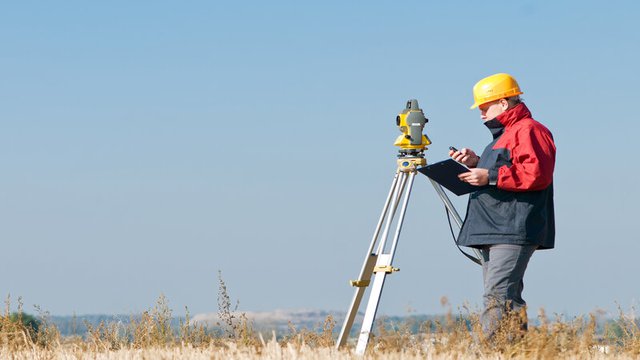
What does a land surveyor do?
Feb. 26, 2024

A land surveyor is a trained professional responsible for measuring and mapping the Earth's surface and plays a key role in any construction project, whether that is housing, offices, roads or any other infrastructure.
They use specialised tools and techniques to determine land boundaries, create maps, establish property lines, and provide essential data for construction projects. Their work is essential for urban planning, real estate transactions, infrastructure development, and environmental conservation efforts.
In this post, we’ll look at what does a land surveyor do, and what to study to become one, such as a carrera en Ingeniería Civil that is taught in Spanish.
Land surveyor duties
Land surveyors perform a variety of tasks, each crucial to ensuring accurate land measurements and legal documentation. While the tasks and duties may vary depending on where the land surveyor is working and in what type of organisation these are some of the typical tasks they’ll carry out:
- Boundary determination: Surveyors use advanced equipment such as total stations, GPS receivers, and drones to precisely measure and mark property boundaries.
- Topographic mapping: They create detailed maps that illustrate the physical features and contours of a piece of land. This information is vital for architects, engineers, and urban planners.
- Construction surveying: Surveyors work closely with construction teams to provide layout staking, ensuring that buildings and infrastructure are constructed according to design plans and property boundaries.
- Geographic Information Systems (GIS): They collect and analyse spatial data to create digital maps and databases used in various industries, including agriculture, forestry, and emergency management.
- Legal documentation: Surveyors prepare reports, maps, and legal descriptions of properties to support land transactions, boundary disputes, and land development projects.
Land surveyor skills
Becoming a successful land surveyor requires a unique blend of technical skills, critical thinking abilities, and attention to detail. Some essential skills for this profession include:
- Technical proficiency: Surveyors must be adept at using a variety of surveying instruments and technologies, including GPS, laser scanners, and computer-aided design (CAD) software.
- Analytical thinking: They need strong problem-solving skills to interpret data, resolve discrepancies, and make accurate calculations.
- Attention to detail: Precision is paramount in surveying. Even small errors can have significant implications, so surveyors must pay close attention to detail in their work.
- Communication skills: Surveyors often work in teams and interact with clients, engineers, and government officials. Clear communication is essential for conveying information accurately and effectively.
- Legal knowledge: Understanding property laws, land use regulations, and surveying standards is critical for ensuring that survey work complies with legal requirements.
- Physical stamina: Surveying often involves working outdoors in various weather conditions and terrain types, so physical fitness and stamina are important.
What to study to be a land surveyor?
To pursue a career as a land surveyor, individuals typically need a combination of education and practical experience – something you’ll get if you study the degree in Civil Engineering at Universidad Europea. The four-year programme covers a wide range of subjects within the study plan, but importantly, you will also spend time carrying out work placements and internships at different organisations with the engineering sector, building the skills and your network of contacts to be able to succeed from day one.
Land surveyors play a vital role in shaping the physical landscape around us. Through their expertise in measurement, mapping, and analysis, they help ensure that development projects proceed smoothly, property boundaries are accurately defined, and land resources are managed effectively. If you're considering a career in surveying, be prepared for a rewarding profession that combines technical skill with a deep appreciation for the land and its resources.